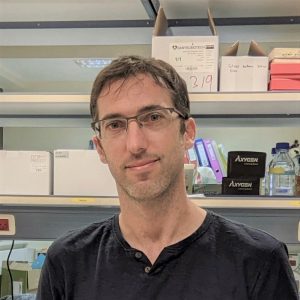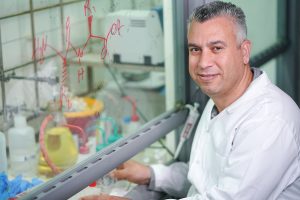German-Israeli Research
How to Block Cancerous Proteins
The development of cancer is intricately linked to abnormal levels of a unique groups of proteins termed oncoproteins. In “normal” cells, oncoproteins play a crucial role in orchestrating cell growth, cell proliferation, and cell death, thus requiring strict regulation, which is achieved by their rapid degradation. However, through mechanisms that have remained poorly understood, oncoproteins evade the degradation machinery and acquire active resistance to breakdown, leading to cancer transformation and rendering resistance to anti-cancer drugs. The enhanced stability of oncoproteins is critical for the survival of cancer cells, presenting important avenues in cancer research and therapy.
As part of a collaborative international research project, three scientists from the Technion – Israel Institute of Technology and two researchers from Germany will investigate the molecular mechanisms that stabilize oncoproteins in cancer. As a potential means to treat aggressive cancers, the researchers will explore new approaches to attack resistance mechanisms. Their ultimate goal is to ensure these proteins are broken down quickly and their concentration returns to normal physiological levels. The group research project has been awarded a grant of 1.6 million euros from the DIP research program for collaborative research between Germany and Israel.
The Technion researchers participating in the project are Professor Ashraf Brik from the Schulich Faculty of Chemistry, Professor Amir Orian from the Ruth and Bruce Rappaport Faculty of Medicine, and Assistant Professor Dan Bracha from the Faculty of Biotechnology and Food Engineering. From Germany, the project collaborators include Professor Ivan Đikić from the Goethe University in Frankfurt and Professor Markus Diefenbacher from the Helmholtz Center in Munich.





